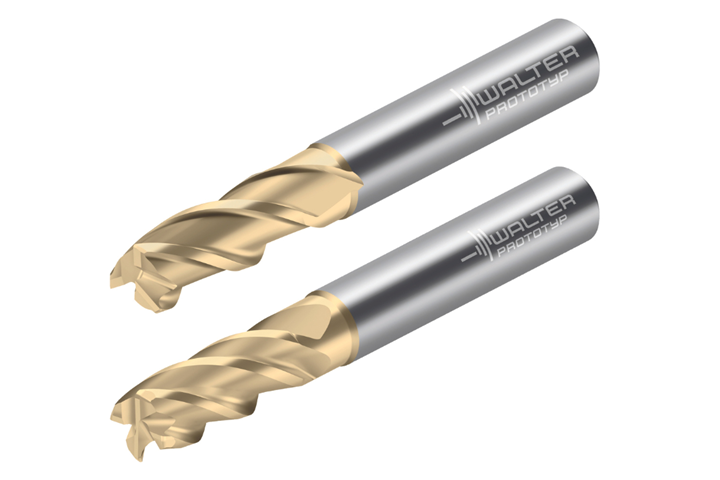Carbide Milling Cutters Provide Dynamic Milling Action
The Walter MD340/MD344 Supreme solid carbide milling cutters for machining steel are highly universal in application, from plunging and pocket and cavity milling to roughing and full slotting and help reduce tool costs.
Walter USA showcases the MD340 Supreme and MD344 Supreme solid carbide milling cutters for machining steel (ISO P). Out of the company’s three tool categories, Supreme tools indicate the highest level of technology and performance available.
The use of the tough milling grade WK40TP with multilayer TiAlN and ZrN coatings ensures that these milling cutters provide exceptional performance when machining ISO P materials, Walter says. In addition, these cutters are available with a reduced neck to enable reliable shoulder milling with a high metal removal rate.
The MD340 Supreme has a diameter range from 1/16-3/4" or 2-25 mm and is specifically designed for roughing, full slotting and dynamic milling. A wide variety of products with three, four or five teeth makes the cutter productive for universal application.
The MD344 Supreme is a four-flute mill with a specific face geometry for optimal 90-degree plunging and steep ramping angles. The diameter range is from 6-20 mm. According to the company, the multiple operations performed by the MD344 Supreme can shorten machining time due to fewer tool changes, the required tool spaces in the machine is reduced and reconditioning costs are also lessened because no additional boring tools are required.
The MD344 Supreme and the MD340 Supreme three-flute versions both feature a 38-degree helix. The MD340 Supreme four-flute has a 39/41-degree variable helix, and the MD340 five-flute version features a differential or unequal pitch.
The variable helix, differential pitch versions are each coordinated and adapted to the number of teeth, to ensure optimal performance and operational smoothness, which in turn also improves the quality of the surface finish and maximizes tool life.
Related Content
-
Fundamentals of Designing the Optimal Cooling System
The right mold components can help improve mold cooling and thereby produce higher-quality parts.
-
Machine Hammer Peening Automates Mold Polishing
A polishing automation solution eliminates hand work, accelerates milling operations and controls surface geometries.
-
The Secrets to Hard Milling Success
The Secrets to Hard Milling Success









.png;maxWidth=300;quality=90)






